Siberia is the Asian part of the Russian Federation; a huge area (10% of the world’s land) with little population.
After completing Russian arrival formalities in our cabins we were on our way again at 10 am, next stop Ulan-Ude at 3 pm, 285 km from the border. We had a few hours in Ulan-Ude where Mongolian, Buryat, Buddhist and Russian cultures were on display at an afternoon concert. Some wonderful 200 year old wooden houses still remain in this city. After dinner, the train departed for Lake Baikal.
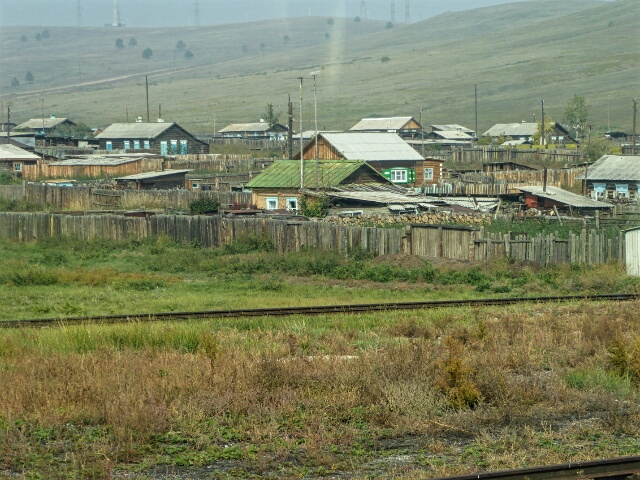
Our first sight of Siberia – a small village beside the railway tracks
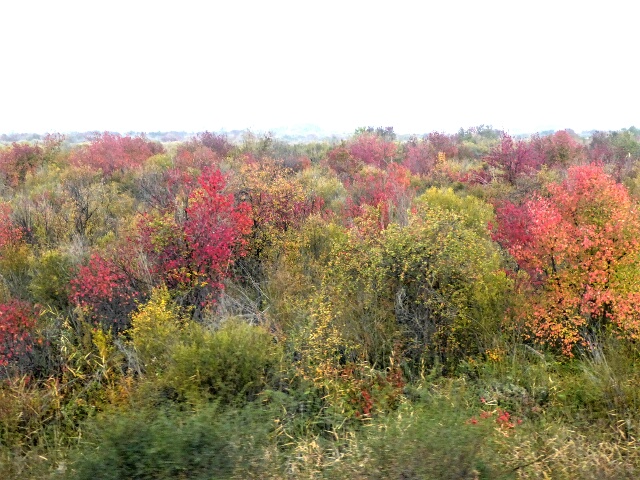
Autumn in Siberia
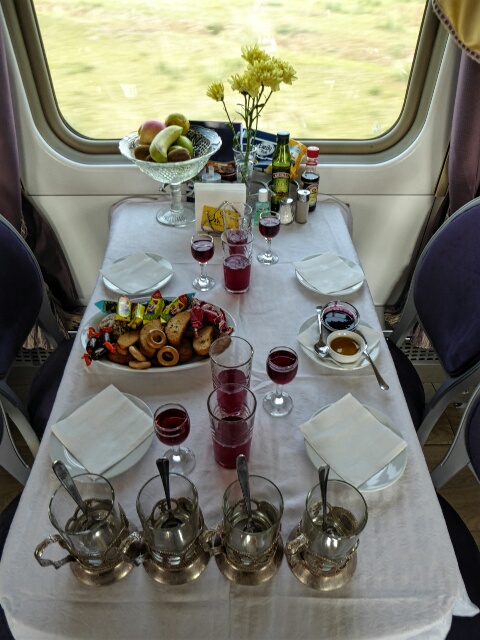
Russian tea time – conversation with fruit juices, liquor, sweets and tea
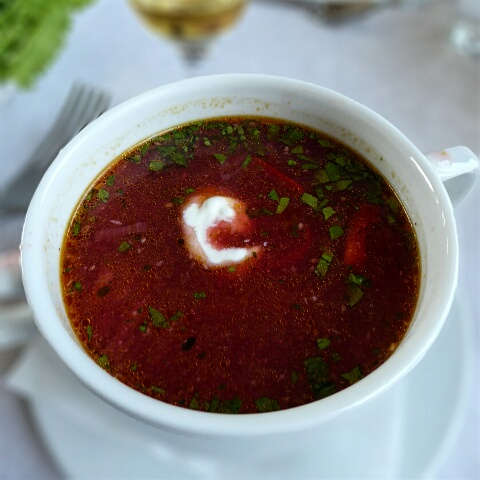
Deliciousios Russian borscht, eaten with garlic bread, ham and vodka

Ulan-Ude’s Orthodox Church (1741)

Traditional wooden house of Siberia – Larch timber never rots
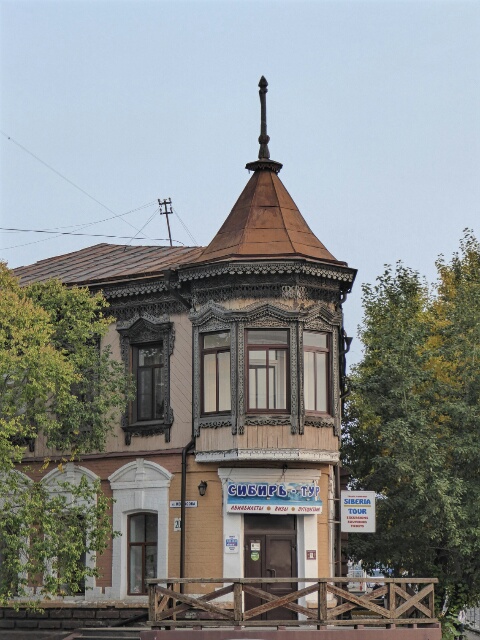
Ulan-Ude’s old Post Office
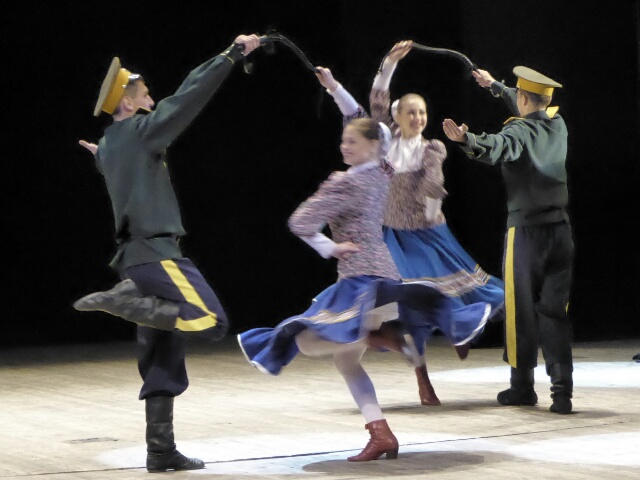
Cossacks dancing at the Ulan-Ude Cultural Show
LAKE BAIKAL
Sunday 25 September 2016
640 km long Lake Baikal (alt. 450m) is the world’s oldest and deepest (1637 meters) freshwater lake.
Our train waited in Slyudyanka at the southwestern end of the Lake until dawn to allow daylight travel on the historic and delightful Circum-Baikal Railway (built 1902-1904) along the northern shore to Port Baikal. A unique engineering achievement with many beautifully constructed bridges and tunnels, it was very picturesque with autumn colours and a highlight of our trip. From Port Baikal, a short ferry boat ride across the lake is a restored Cossack village where we had the most delicious Siberian pancakes (blinis).
Halfway back to Slyudyanka, at 7 pm, the train stopped at Palavinaya village to allow swimming in the freezing Lake – a favorite German activity – followed by a fantastic outdoor Siberian BBQ. It was cold, down jacket cold but food, wine and vodka warmed us. Outside temperature dropped to -2C but inside the train it’s always very warm.
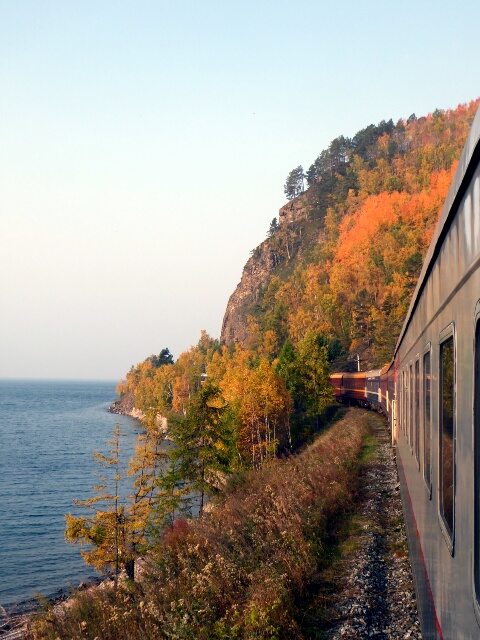
Along Lake Baikal
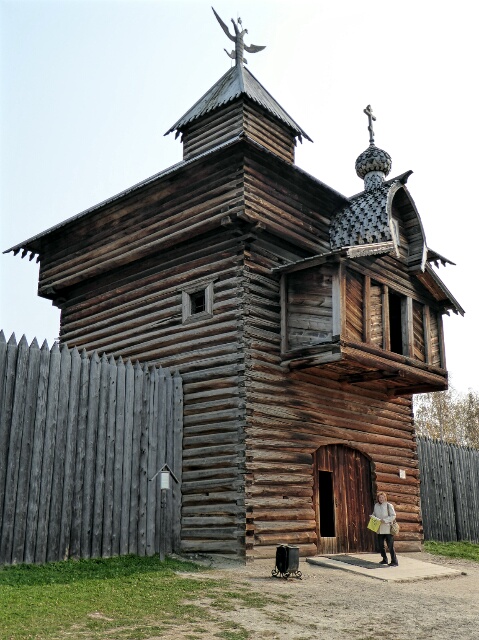
Cossack Fort, reconstructed at Talzy near Lake Baikal
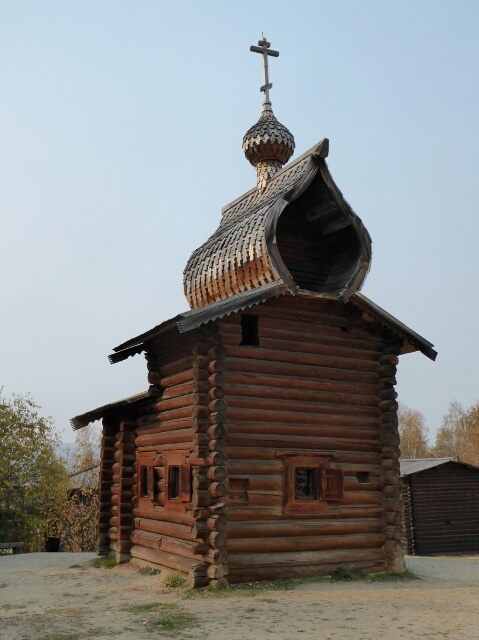
Saviour’s Tower of Ilimsk Stockaded Town (1667)
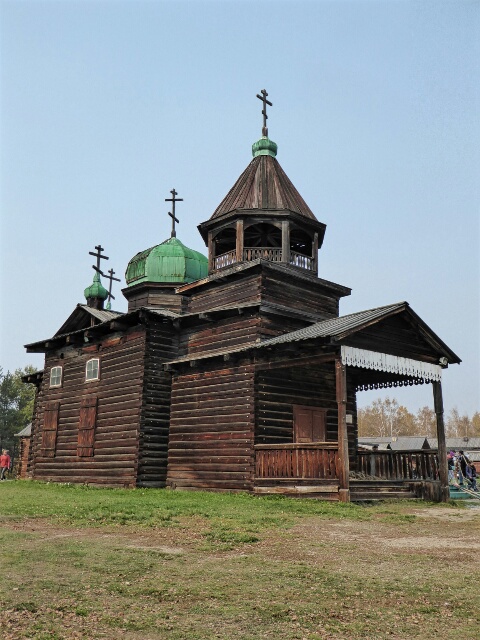
Wooden Church used by Cossacks
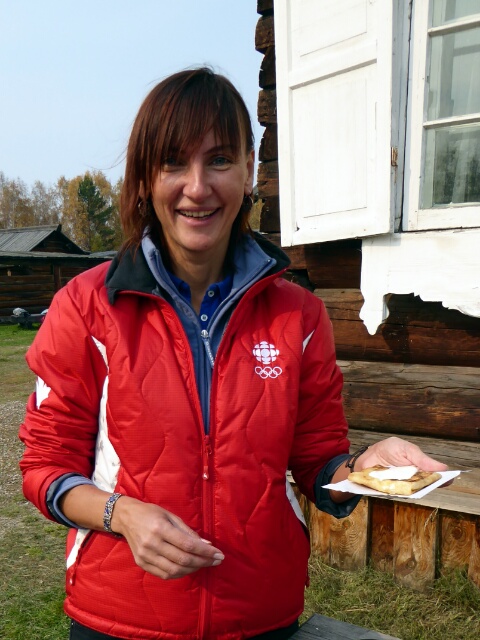
Marina, our Russian tour guide, offers a blini stuffed with farmers cheese
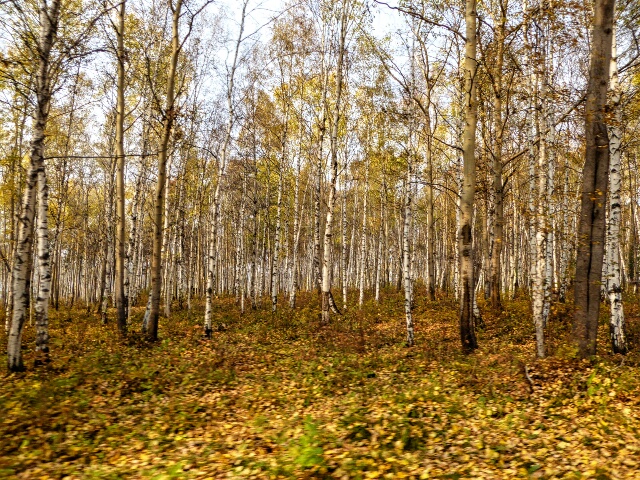
Lake Baikal birch forest turning yellow

Lake fish being smoked for …
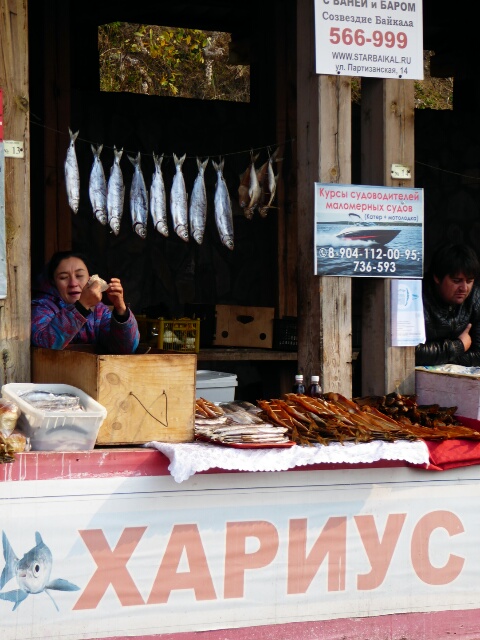
… the Lake Baikal fish market
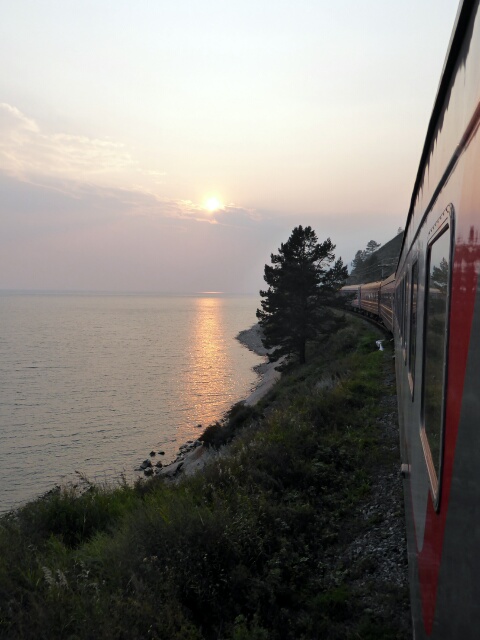
Sunset on Lake Baikal

Train staff set up our BBQ while …
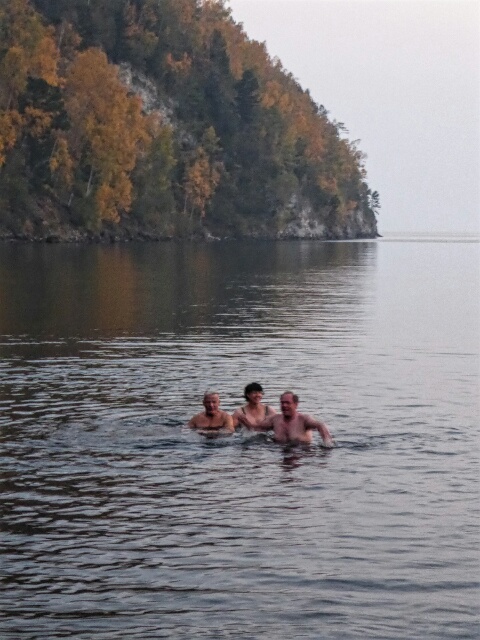
… a few passengers brave the icy waters of the Lake
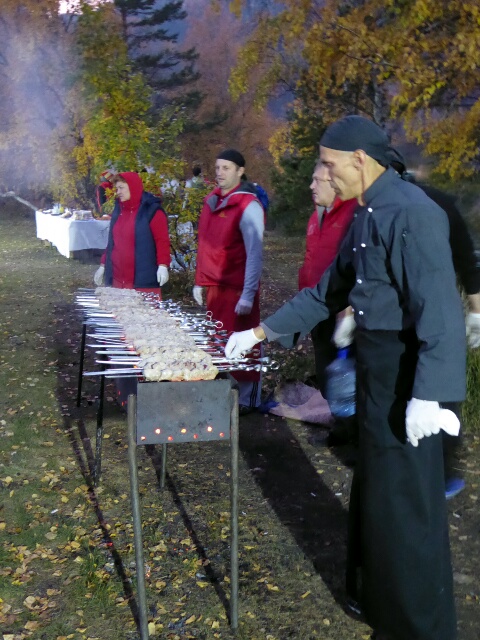
The marinated Siberian style pork and chicken shasylyks were delicious
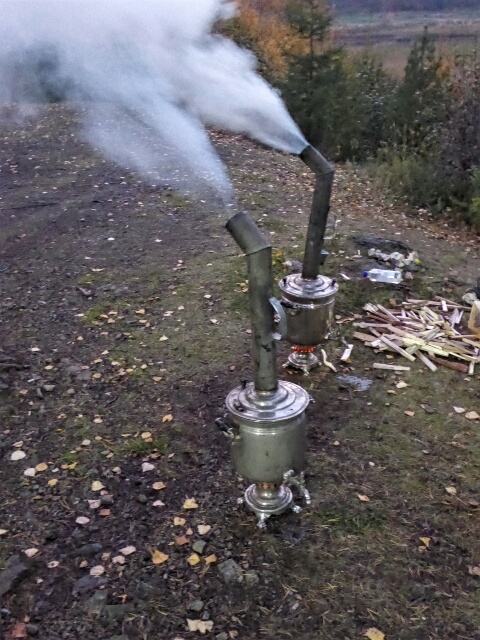
Traditional wood fired samovars preparing tea
IRKUTSK
Monday 26 September 2016
Irkutsk, 625 km from Ulan-Ude via Lake Baikal, is only 350 years old and was once known as the “Paris of Siberia” for its 19th century architecture and French fashions. Many wooden and stone buildings of that period of prosperity remain. We disembarked the train at 10 am for a day’s sightseeing and a fabulous home cooked meal at a family dacha in the forest about 30 minutes out of town.
After a night in a hotel, we left at 9 am. For us the weather was cold at -4°C but in the depths of Siberian winter expect -40°C. Next stop, Novosibirsk 1850 km, 31 hours, further west. Enroute we made two 20 minute technical stops to change engines – apparently Russian train engines are not allowed to stray too far from their homes.
An afternoon’s vodka tasting on the train went down quite well, so to speak. Pam’s favorite – the one infused with honey and chilli.
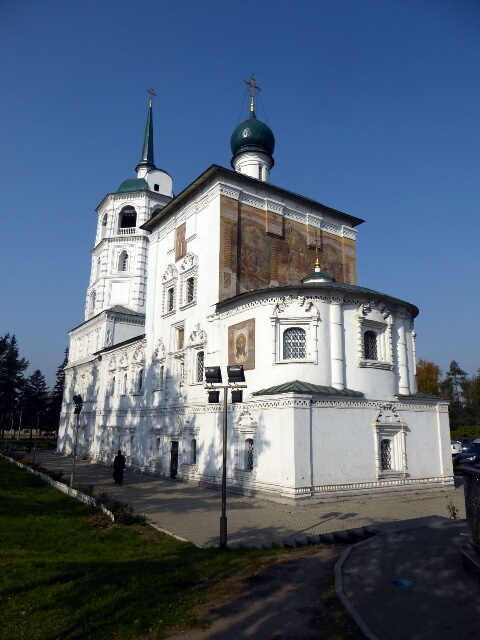
Church of Our Saviour, Irkutsk, built 1706
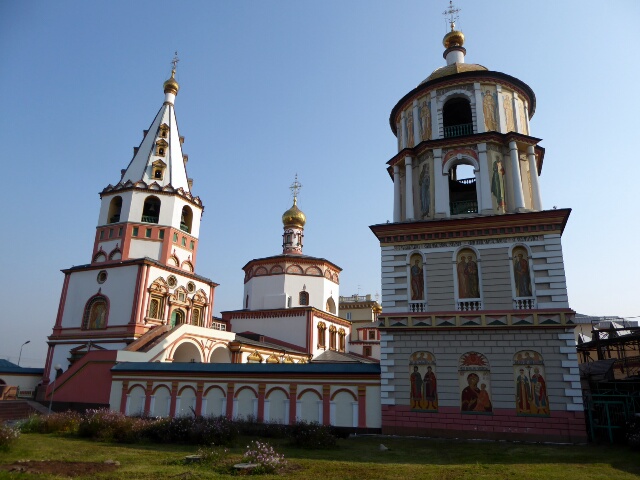
Irkutsk’s Epiphany Cathedral (1718 restored 1994)
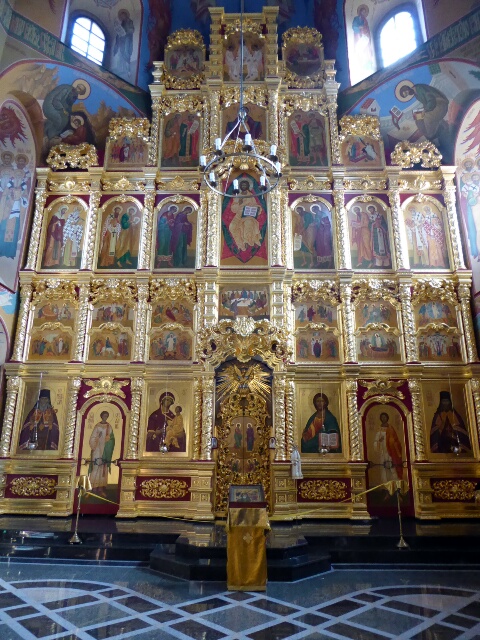
Inside Irkutsk Cathedral – a big revival of Russian Orthodox in recent years

Newlyweds put locks on this bridge and throw the keys into the Angara River
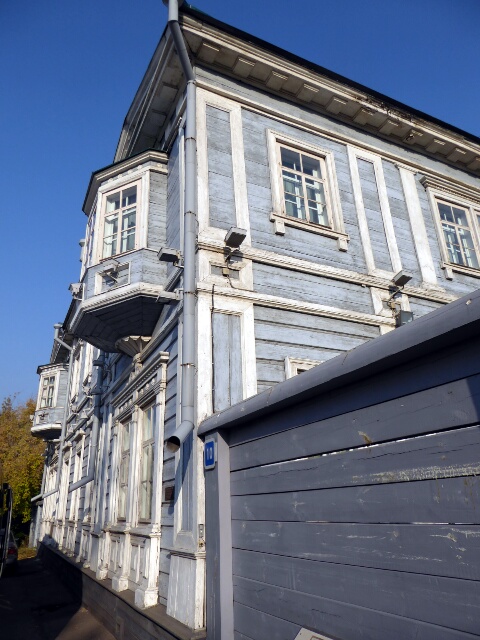
19th Century wooden house, built 1838 restored 1985
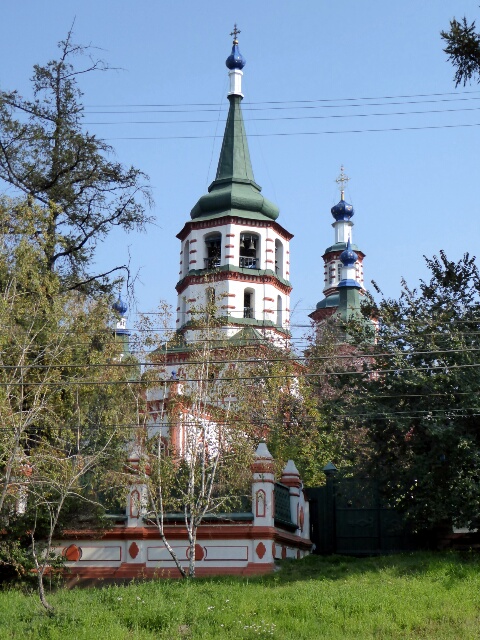
Raising of the Cross Church, Irkutsk
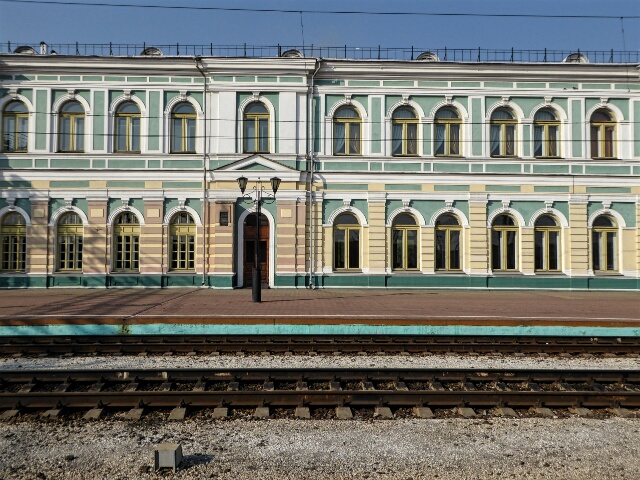
Irkutsk Railway Station

Galina, one of our wagon conductors, makes sure everyone is on board
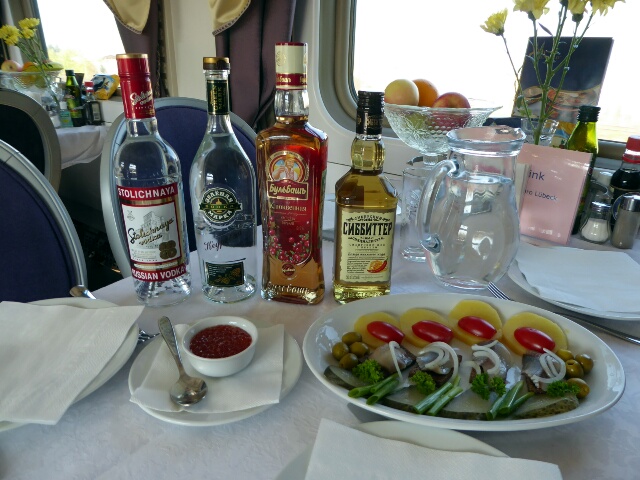
Vodka tasting on the train – 4 different vodkas, caviar and pickled herrings
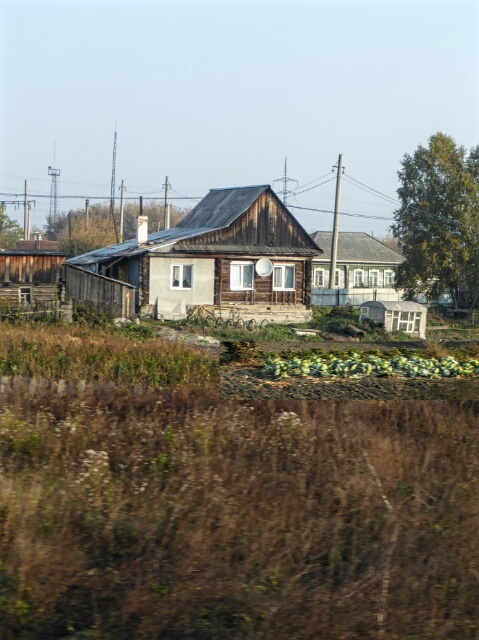
Families need their small gardens …
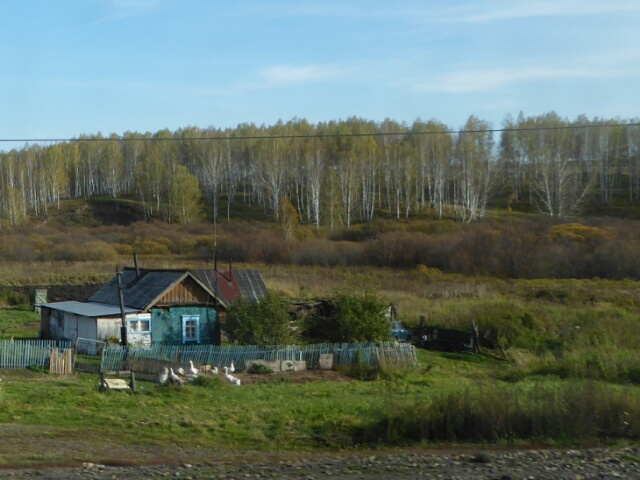
… and their ducks
NOVOSIBIRSK
Wednesday 28 September 2016
Novosibirsk was established in the 1890’s as the Trans-Siberian Railway extended eastward and today is Siberia’s largest city.
When the train pulled in at 4 pm we were greeted with bread and salt, song and dance on the station platform. A visit to the local market, a brief city tour and we were on our way again at 8 pm. Maybe it was the Russian wine we had with dinner (which actually tasted OK) but the train seemed rougher than usual during the night, or maybe we hit a bump crossing the 2 time zones on the 1530km section to Yekaterinburg (in European Russia).
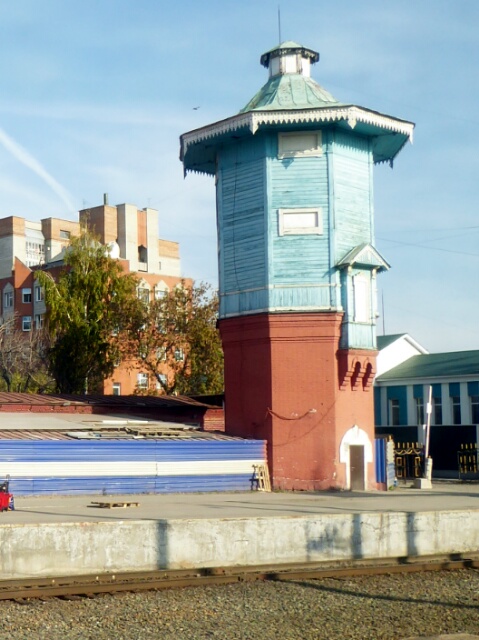
Wooden water pump station for the trains beside the railway tracks
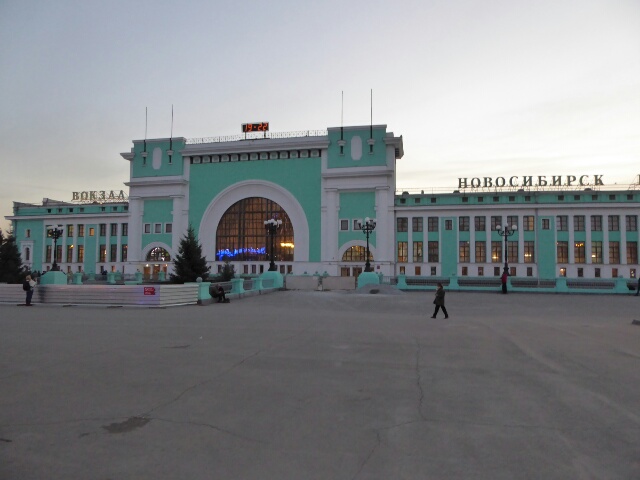
Novosibirsk Railway Station was built to resemble a train engine
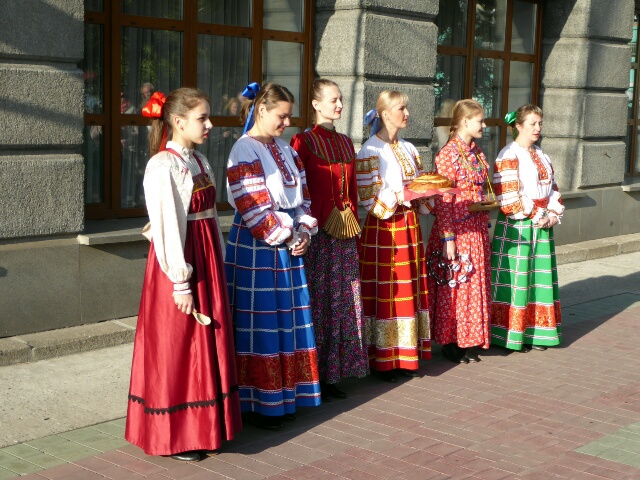
Welcome to Novosibirsk
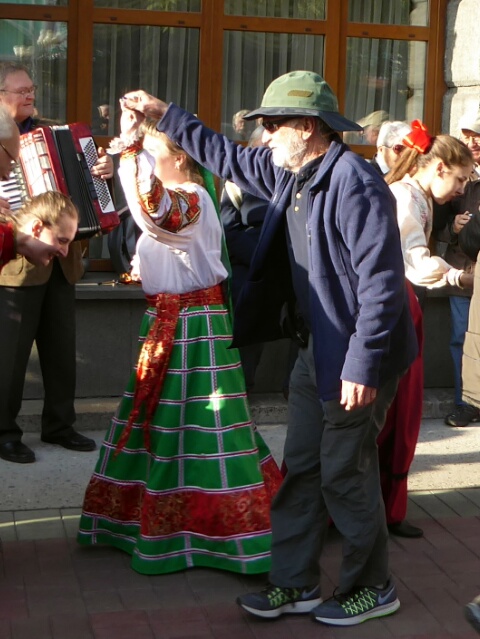
Jeff dancing on the Novosibirsk platform
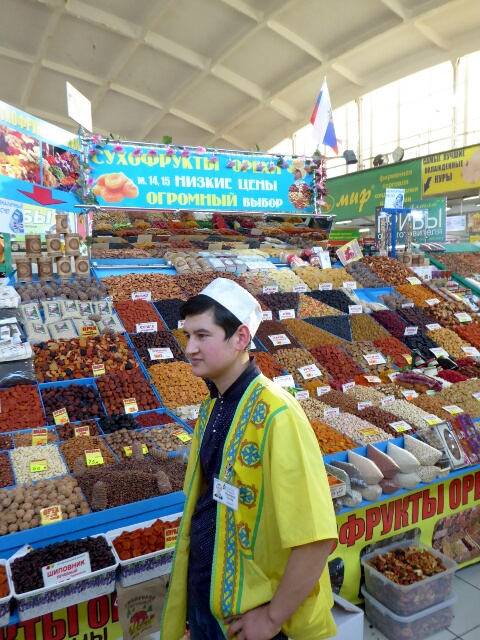
People from former Soviet republics have stalls in Novosibirsk market
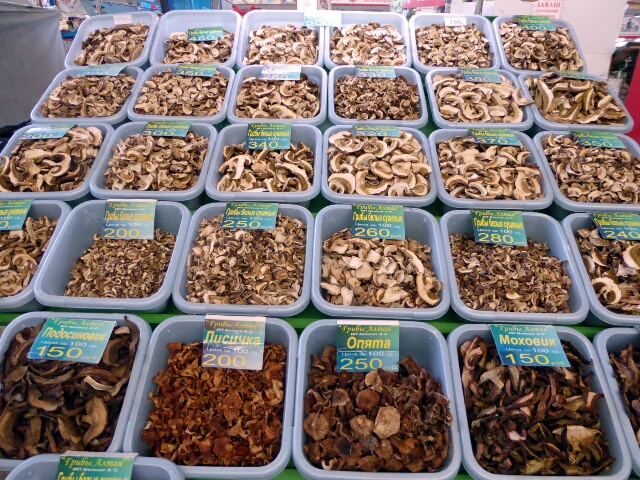
Novosibirsk has the best mushrooms – we had some at dinner
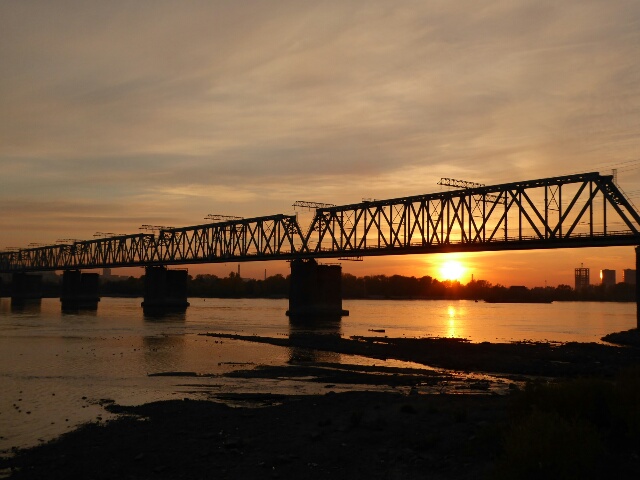
Novosibirsk grew up around the Trans-Siberian bridge across the Ob River
